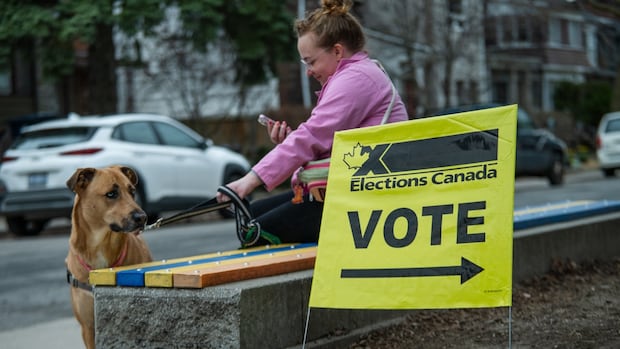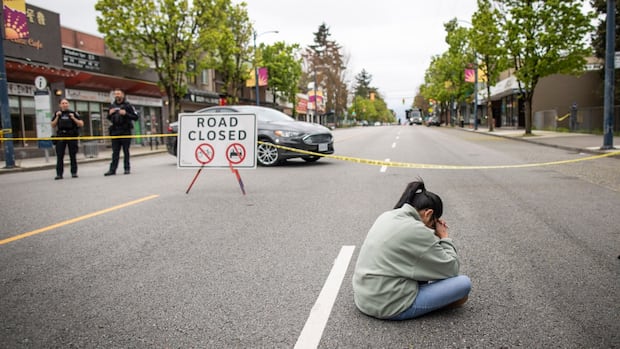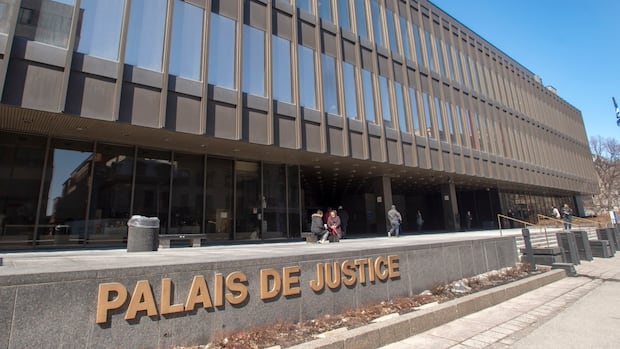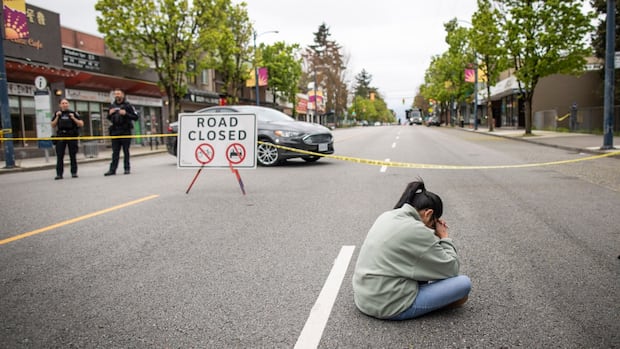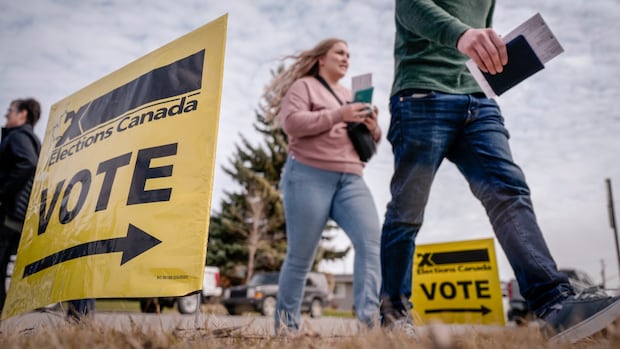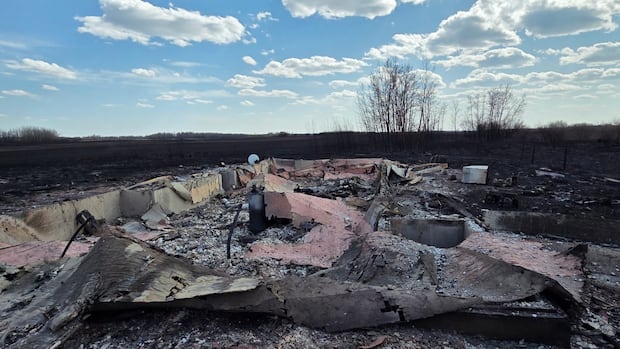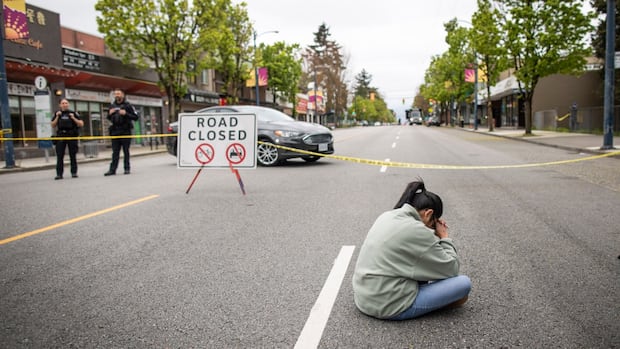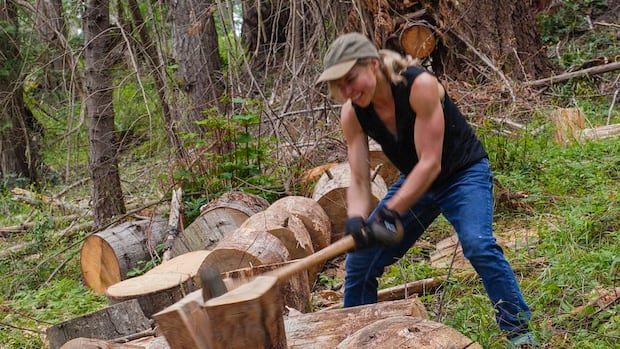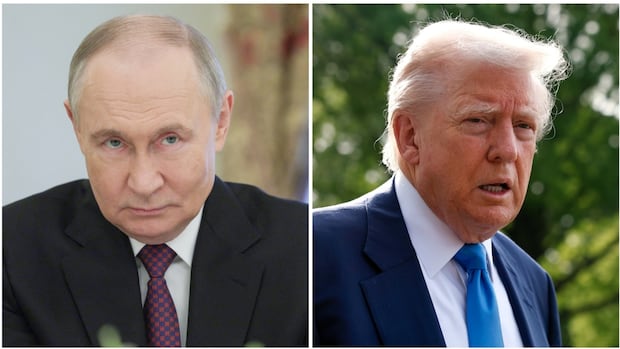Millions of Canadians are expected to cast their ballots today in a pivotal election that will decide who will lead the country through a trade battle with the United States.
The 36-day campaign has been nothing short of remarkable for the leading contenders: Liberal Leader Mark Carney and Conservative Leader Pierre Poilievre.
Just a few months ago, polls suggested Poilievre was all but guaranteed to snap up the majority government he'd long been waiting for, after Canadians soured on former prime minister Justin Trudeau.
Then came Trudeau's early January resignation, U.S. President Donald Trump's trade war and persistent barbs about making Canada the 51st state — flipping the political script.
WATCH | Why should you care about how elections work?: Why would my vote matter? Majority government? Minority? And what’s ‘first-past-the-post’? We’re calling on experts to outline what you need to know so you can maximize your voting power this federal election.With Trump announcing, pausing, then re-announcing devastating tariffs on Canadian goods, the campaign largely became a race about who is best to steer Canada through global uncertainty.
While the overall margin between the two leading parties narrowed in the final stretch, polls suggest the race is the Liberal Party's to lose.
According to CBC's Poll Tracker, the Liberals maintain an edge in seat-rich Ontario and Quebec, as well as in B.C. and Atlantic Canada, and are favoured to win the most seats.
But it's far from a done deal and as the leaders and their teams have repeated throughout the campaign: the only poll that matters is on election day.
Carney focuses on TrumpCarney tried to define himself as a steady, mature leader who is best to deal with the unpredictable president and map out a new economic and security relationship.
While criss-crossing the country, the freshly minted leader pointed to his time as the governor of the Bank of Canada during the 2008 global financial crisis and head of the Bank of England during the Brexit years as evidence that Canadians should trust him to steer the country's economy through turbulent times.
In one of his most repeated campaign speech lines, Carney argued that "Trump is trying to break us so that America can own us."
"And well, that will never happen," he frequently told crowds that gathered to hear the political newbie speak.
 Liberal Leader Mark Carney made his pitch to Canadians that he's best to lead the country through a crisis. (Sean Kilpatrick/The Canadian Press)
Liberal Leader Mark Carney made his pitch to Canadians that he's best to lead the country through a crisis. (Sean Kilpatrick/The Canadian Press)Carney has had a whirlwind 2025 so far. He handily won the Liberal leadership March 9 and was sworn in as prime minister just nine days before triggering an election.
Carney's greatest weakness going into the campaign was expected to be his shaky French, which he graded six out of 10, but he emerged from the French debate and an ever-important interview with the popular show Tout le monde en parle relatively unscathed.
His campaign did hit some snags. He was accused last week of not telling the whole truth about his conversation with Trump after it was revealed the president raised Canada becoming the 51st state on the call. Carney had said immediately after the call that Trump respected Canada's sovereignty.
It's unclear if voters will see it that way, or whether it will impact their choice.
The last day of the campaign is usually filled with excitement as the parties try to build final momentum and get their message out. Sunday however was twinged by tragedy, following a car-ramming at a Filipino street festival in Vancouver that left 11 dead and more than 20 injured.
The dark end of the campaign saw most of the leaders either cancel events or move around their schedules to offer condolences to the families.
While Carney's final push was toned down, he did hit contested areas including Saskatoon and Edmonton, a sign his campaign is confident heading into Monday's vote.
Poilievre pushed for changePoilievre argued the election comes down to one word: change.
Over the last five weeks the Conservative argued Carney is an extension of the last 10 years of Liberal rule, routinely pointing to Carney's position as Trudeau's economic adviser as proof.
"After the lost Liberal decade of rising crime, chaos, drugs and disorder, we cannot risk a fourth Liberal term. We have to reverse the policies that got us into this mess," he said Sunday at a packed rally in Oakville, Ont.
Poilievre spent part of the last week rallying his base with stops in relatively safe regions in Alberta and Saskatchewan.
 Conservative Leader Pierre Poilievre's message to voters was that his party will bring change that the country desperately needs. (Chris Young/The Canadian Press)
Conservative Leader Pierre Poilievre's message to voters was that his party will bring change that the country desperately needs. (Chris Young/The Canadian Press)He then turned to the Greater Toronto Area, where winning seats is key to a Conservative victory. His final stop Sunday was in his Ottawa riding of Carleton, which Liberals have been targeting.
Poilievre has represented the riding since 2004 and took the reins of the Conservative Party in 2022. Throughout the campaign he has turned to his own story, born to a teen mom and adopted by teachers, as an example of what's possible in this country while arguing the "promise" of Canada has been broken.
Known for his combative style of politics, Poilievre has tried to offer a more calm — more smiley — image lately. He's managed to attract levels of support not seen since Stephen Harper's 2011 majority win, but has watched his party's 20-plus point lead in the polls nosedive as NDP, Bloc and Green voters turn to Carney's Liberals.
Poilievre has faced criticism that he was too slow to pivot from the ballot box questions he wanted to campaign on — the carbon tax, affordability and Trudeau's unpopularity — to Trump's trade war and revived Canadian patriotism.
He's defended his approach, arguing Canadians share his concerns about the housing crisis and illegal drugs.
"I will not stop talking about these problems that predate Donald Trump and that will outlast Donald Trump if we do not fix them," the leader argued.
Singh says he's fighting for CanadiansWith the campaign framed so tightly around Trump, the other two main parties have sometimes found themselves squeezed out of the conversation.
With voters kicking the Liberals' tires, the NDP and Bloc Québécois could suffer significant seat losses Monday night, according to the Poll Tracker.
 NDP Leader Jagmeet Singh started the campaign saying he wanted to form government, but soon switched to talking about holding the leading parties accountable. (Darryl Dyck/The Canadian Press)
NDP Leader Jagmeet Singh started the campaign saying he wanted to form government, but soon switched to talking about holding the leading parties accountable. (Darryl Dyck/The Canadian Press)Singh, fronting his third campaign as leader, has been dogged by questions about the NDP's poor polling and his future since the campaign started.
He pushed back, arguing that sending NDP MPs to the House of Commons in a minority government will keep the next government in check and "improve people's lives."
Friday he stood by his decision to not trigger a federal election sooner, even after ripping up the supply-and-confidence agreement he had signed with the Trudeau Liberals.
"I could not stomach the idea of Pierre Poilievre and the Conservatives forming a majority government," Singh said.
"I knew that it was going to be bad because of their cuts, because of the division, because of the things they wanted."
Singh is quick to point out his deal with Trudeau pushed the Liberals to bring in pharmacare and a dental care programs, policies that New Democrats have sought for years.
Singh spent the final days of the campaign shoring up orange support in the border city of Windsor, Ont., and then in British Columbia as the party hopes to maintain official party status.
Bloc leader pitches his party as best for QuebecBloc Québécois Leader Yves-François Blanchet has also been working to hold the balance of power in the House, with his home province once again proving to be an important battleground for deciding the final outcome. The separatist party only runs candidates in Quebec and its mandate has long been to act as a voice for Quebecers in Ottawa.
During the final days of the campaign, Blanchet courted controversy when he described his role as serving in a "foreign Parliament" and called Canada "an artificial country with very little meaning."
"This nation is not mine," he said.
 Bloc Québécois Leader Yves-François Blanchet said Quebecers should choose his party to be best represented in Ottawa. (Christinne Muschi/The Canadian Press)
Bloc Québécois Leader Yves-François Blanchet said Quebecers should choose his party to be best represented in Ottawa. (Christinne Muschi/The Canadian Press)Polls suggest the Green Party is at risk of being wiped off Canada's electoral map, but co-Leader Elizabeth May has said she's hopeful the Greens can not only hold their two seats in the House of Commons but grow.
The first results are expected to trickle in from the Atlantic provinces just after 7 p.m. and 7:30 p.m. ET. The majority of votes will be counted after 9:30 p.m. ET, including from Ontario and Quebec. The last tranche of votes will come from British Columbia and Yukon beginning around 10 p.m. ET.
You can check when polling stations in your region close here.
Approximately 7.3 million Canadians already voted in advance polls, according to Elections Canada.
You can watch CBC's special election coverage beginning at 6:30 p.m. ET.


